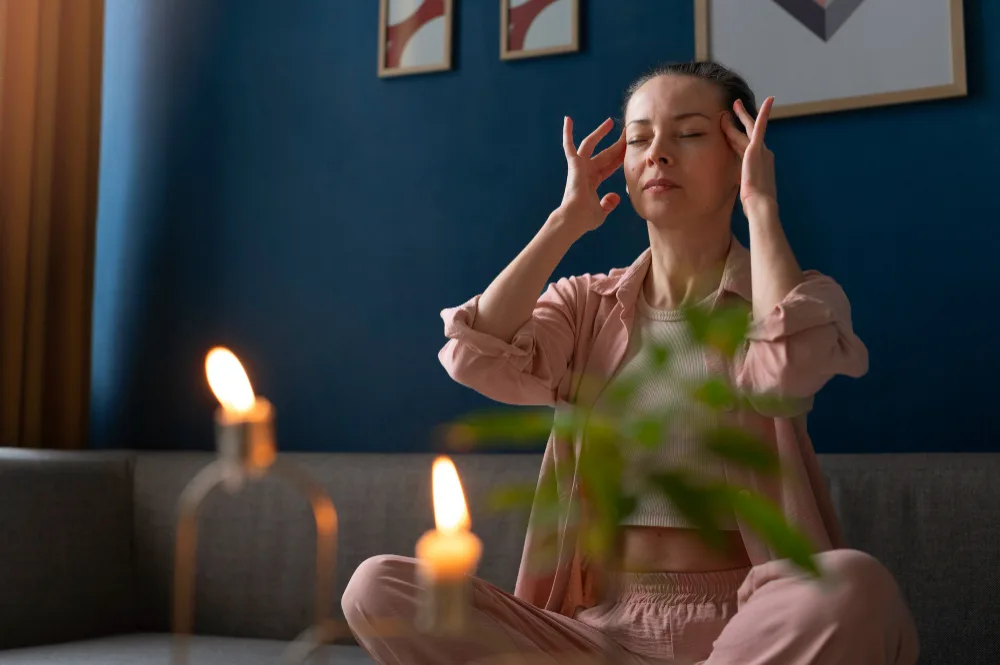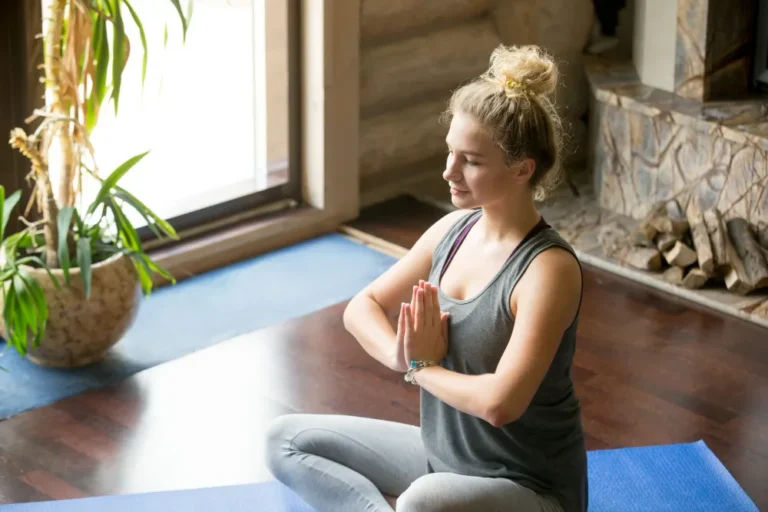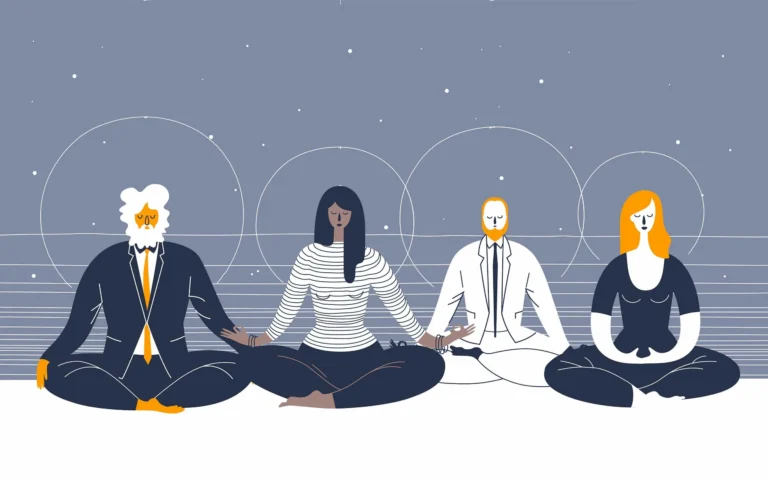Mind Relaxation Tips: A Comprehensive Guide to Relieving Stress
In today’s fast-paced world, where stress, anxiety, and constant demands bombard us daily, finding effective mind relaxation tips is more important than ever. A relaxed mind is essential for maintaining mental and emotional well-being, improving focus, and boosting productivity. Whether you’re dealing with work pressure, personal challenges, or the everyday hustle, incorporating mind relaxation techniques into your routine can lead to a more balanced, peaceful life.
In this article, we’ll explore a variety of mind relaxation tips and techniques that can help you relieve stress, calm your thoughts, and restore inner peace.
Mind Relaxation Tips: Why Mind Relaxation Is Crucial
Before diving into the specific mind relaxation tips, it’s important to understand why mental relaxation is vital. Our minds are often overworked due to constant stimulation from technology, social obligations, and responsibilities. This continuous activity can lead to mental fatigue, burnout, and even physical health issues such as headaches, poor sleep, and a weakened immune system.
By focusing on mind relaxation tips and techniques, you allow your brain to rest, recover, and function more efficiently. It enhances your ability to focus, improves emotional regulation, and can even lead to greater creativity and problem-solving skills.
1. Practice Mindful Breathing
One of the simplest and most effective mind relaxation tips is mindful breathing. By focusing on your breath, you can bring your awareness back to the present moment and calm your mind. Deep, slow breathing helps activate the parasympathetic nervous system, which reduces the body’s stress response.
How to Practice:
- Sit or lie down in a comfortable position.
- Close your eyes and take a deep breath in through your nose, counting to four.
- Hold the breath for a moment, then exhale slowly through your mouth, counting to six.
- Repeat for five to ten minutes, focusing solely on your breathing.
Mindful breathing can be practiced anywhere, making it a convenient tool for instant mind relaxation.
2. Engage in Meditation
Meditation is another powerful tool for relaxing the mind. Regular meditation helps in reducing anxiety, improving focus, and increasing self-awareness. It allows you to quiet the mental chatter and bring your attention inward, leading to a calm and peaceful mind.
Mind Relaxation Tips: Types of Meditation for Mind Relaxation:
- Guided Meditation: Listen to a recorded voice that leads you through a calming narrative.
- Mantra Meditation: Focus on a specific word or phrase (mantra) to keep your mind from wandering.
- Body Scan Meditation: Gradually bring your awareness to different parts of your body, releasing tension as you go.
By incorporating even a few minutes of meditation into your daily routine, you’ll notice significant improvements in your mental clarity and relaxation.
3. Take Breaks in Nature
Nature has a profound calming effect on the mind. Spending time outdoors can greatly enhance your mental well-being by reducing stress levels and promoting relaxation. If you’re looking for mind relaxation tips that involve a change in environment, try taking regular breaks in natural surroundings.
Mind Relaxation Tips: How Nature Helps Mind Relaxation:
- The sound of birds, rustling leaves, and flowing water can naturally calm the brain.
- Sunlight exposure helps increase serotonin levels, a hormone associated with mood regulation.
- Walking barefoot on grass or sand (grounding) can help reduce anxiety and tension.
If possible, take short walks in a park or spend time in your garden to connect with nature and give your mind the relaxation it deserves.
4. Try Progressive Muscle Relaxation
Progressive muscle relaxation (PMR) is a technique that involves tensing and then relaxing different muscle groups in your body. This not only helps release physical tension but also calms the mind, promoting overall relaxation.
Steps for PMR:
- Find a quiet place and sit or lie down.
- Starting from your toes, tense the muscles in that area for 5-10 seconds, then relax them.
- Gradually move up through your body, tensing and relaxing different muscle groups (legs, abdomen, arms, shoulders, neck, and face).
- Focus on the sensation of relaxation after releasing each tension.
Progressive muscle relaxation is particularly effective for those who struggle with physical symptoms of stress, such as muscle stiffness or headaches.
5. Use Visualization Techniques
Visualization, or guided imagery, is another popular method for mind relaxation. This technique involves picturing calming and serene scenes in your mind to distract yourself from stress and anxiety.
How to Practice:
- Find a comfortable place to sit or lie down.
- Close your eyes and visualize a peaceful scene, such as a beach, mountain view, or quiet forest.
- Imagine the sights, sounds, and smells of the environment in as much detail as possible.
- Allow yourself to fully immerse in the imagery for 5-10 minutes.
Visualization helps the brain shift from stress to a state of calm, making it an effective tool for relaxation.
6. Listen to Relaxing Music
Music can be a great tool for calming the mind. Slow, soothing music has been shown to lower blood pressure, slow the heart rate, and reduce cortisol levels, which all contribute to relaxation. Whether you prefer classical music, nature sounds, or ambient electronic music, incorporating this into your relaxation routine can have powerful effects.
Best Types of Music for Mind Relaxation:
- Classical Music: Calming compositions from Bach, Mozart, and Beethoven.
- Nature Sounds: Waterfalls, rain, ocean waves, or birds chirping.
- Binaural Beats: Sound frequencies designed to promote relaxation and mental clarity.
You can create a relaxation playlist to listen to during breaks, before bed, or while practicing meditation.
7. Practice Gratitude and Positive Thinking
Positive thinking and practicing gratitude are underrated mind relaxation tips. Shifting your mindset from focusing on stress and challenges to appreciating the good things in your life can reduce anxiety and improve overall mental well-being.
How to Practice:
- Keep a gratitude journal and write down three things you’re thankful for each day.
- Replace negative thoughts with positive affirmations.
- Focus on what you can control rather than stressing about things outside your control.
This simple habit can transform your mental state, helping you maintain a calm and positive outlook.
8. Engage in Light Physical Activity
Exercise is not just for the body—it’s also one of the best mind relaxation tips. Engaging in light physical activities such as yoga, Tai Chi, or walking can help release endorphins, the body’s natural stress-relieving hormones. These activities also promote mindfulness and present-moment awareness, contributing to a more relaxed state of mind.
Benefits of Light Exercise for Mind Relaxation:
- Improves mood and reduces anxiety.
- Enhances concentration and focus.
- Promotes better sleep, further aiding in relaxation.
Aim for at least 20-30 minutes of light physical activity daily to support both mental and physical relaxation.
9. Establish a Bedtime Routine
Good sleep is essential for a relaxed and healthy mind. Without adequate rest, the brain becomes fatigued, which can lead to increased stress and difficulty managing emotions. One of the most practical mind relaxation tips is to create a consistent and calming bedtime routine that encourages better sleep.
Tips for a Relaxing Bedtime Routine:
- Avoid screens (TV, phone, tablet) at least an hour before bed.
- Read a calming book or listen to relaxing music.
- Practice deep breathing or light stretching.
- Use aromatherapy with essential oils like lavender to promote relaxation.
A regular sleep routine helps your mind and body wind down, ensuring that you wake up refreshed and ready to tackle the day.
10. Use Aromatherapy for Mind Relaxation
Aromatherapy is a popular mind relaxation technique that involves using essential oils to promote mental and physical calmness. Scents like lavender, chamomile, and sandalwood are known for their calming properties and can be used in a variety of ways to aid in relaxation.
How to Use Aromatherapy:
- Diffuse essential oils in your living or workspace.
- Apply diluted essential oils to your wrists or temples.
- Add a few drops of essential oil to your bath for a soothing experience.
Aromatherapy can be a quick and effective way to promote relaxation, especially when combined with other techniques such as meditation or deep breathing.
Conclusion
By integrating these mind relaxation tips into your daily routine, you can effectively manage stress, enhance mental clarity, and cultivate a sense of inner peace. At SVEnlightment, we emphasize that whether through mindful breathing, meditation, physical activity, or creating a soothing environment, finding what works best for you is key. Over time, practicing these mind relaxation techniques will improve your overall quality of life and help you better handle life’s inevitable challenges.



 Introduction: Why Health & Fitness Tips for Students Matter Health & fitness tips for students are more…
Introduction: Why Health & Fitness Tips for Students Matter Health & fitness tips for students are more…



